News & Events
It Does Not Pay to Disobey the Judge, But You May Have To
/ 15.Jun, 2011
The misconduct of plaintiffs’ counsel took center stage at a February 2010 jury trial in a wrongful death and survivorship action in the United States District Court Eastern District of Pennsylvania. On the second day of trial, plaintiffs’ counsel gave his opening statement and questioned two witnesses. Throughout the questioning, plaintiffs’ counsel violated several of the court’s evidentiary rulings, incurred more than 30 sustained objections, violated the court’s rulings and instructions at trial, and exposed the jury to a number of excluded evidentiary issues, improper questions and inflammatory statements. Defense counsel moved for a mistrial following the opening statements, and the court admonished plaintiffs’ counsel. Plaintiffs’ counsel assured the court that his conduct would not be repeated, and the motion was withdrawn. However, despite his assurances and after numerous sustained objections and sidebar conferences, plaintiffs’ counsel continued to violate the court’s evidentiary orders, ask improper questions, and disregard the court’s prior instructions.
On the third day of trial, the court granted defendants’ unopposed request for a mistrial based upon plaintiffs’ counsel’s violation of several of the court’s prior orders and rulings, resulting in prejudice to defendants.
Defendants then filed a motion for sanctions against plaintiffs’ counsel and plaintiffs’ counsel’s law firm pursuant to 28 U.S.C. § 1927 and the court’s inherent power to discipline attorneys who appear before it. To violate § 1927, an attorney must be found to have multiplied proceedings in an unreasonable and vexatious manner; thereby increasing the cost of the proceedings and doing so in bad faith or by intentional misconduct. Defendants requested that (1) plaintiffs’ counsel and his firm pay defendants’ attorneys’ fees, expenses and costs; (2) plaintiffs’ counsel and his firm pay the court’s costs for two days of trial; and (3) plaintiffs’ counsel be disqualified from representing plaintiffs.
The court found that plaintiffs’ counsel’s conduct violated § 1927. The court noted that a trial has very specific rules, and it is fundamentally unfair for one party’s lawyer to disobey the rules to the detriment of the other party.
The court granted defendants’ request for attorneys’ fees, costs and expenses associated with the trial and the motion for sanctions. The court denied defendants’ request for the court’s costs and expenses. The court also denied as moot defendants’ request for disqualification of plaintiffs’ counsel because plaintiffs represented that he will not take part in the upcoming trial. The court ordered defendants to submit a petition, setting forth an itemization of their claim for attorneys’ fees, costs and expenses.
On March 28, 2011, the court entered an order which required plaintiffs’ counsel and his firm, jointly and severally, to reimburse defense counsel by check in the amount of $100,436.25 within 30 days of the date of the order. On April 1, 2011, plaintiffs filed a motion to stay the court’s March 28, 2011 order in order to pursue an appeal. In any event, plaintiffs’ counsel and his law firm have learned a costly lesson.
A copy of the court’s opinion can be found here.
Nicole Graham is an associate in the firm’s Philadelphia office. She practices in the Professional Liability Group.


Comments